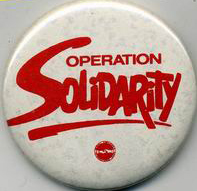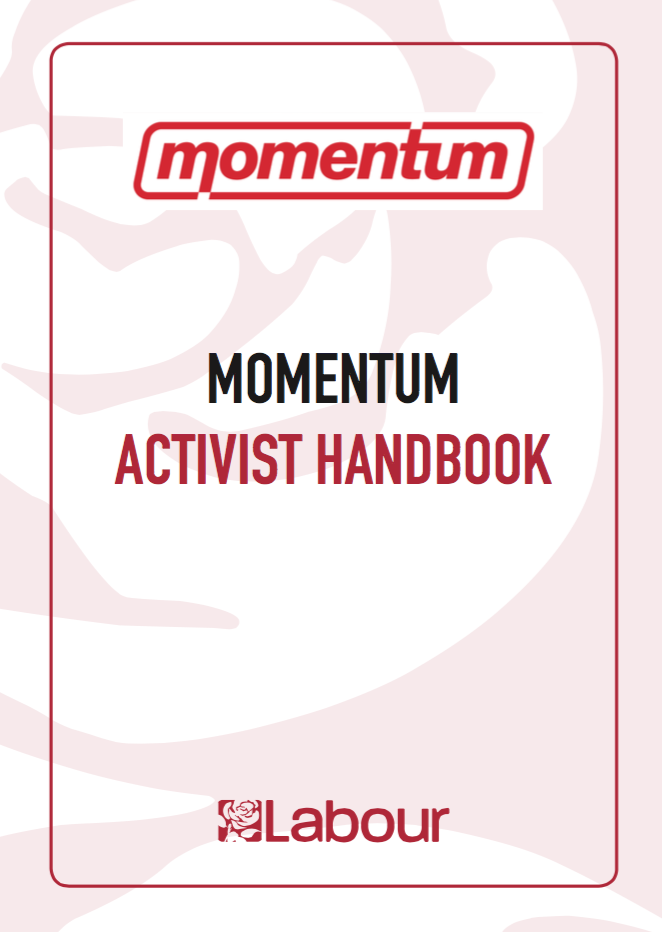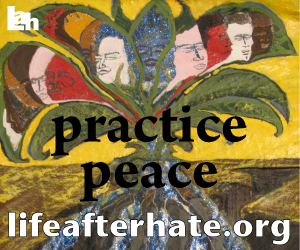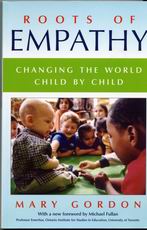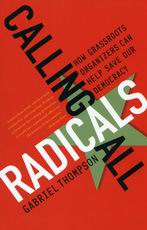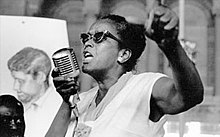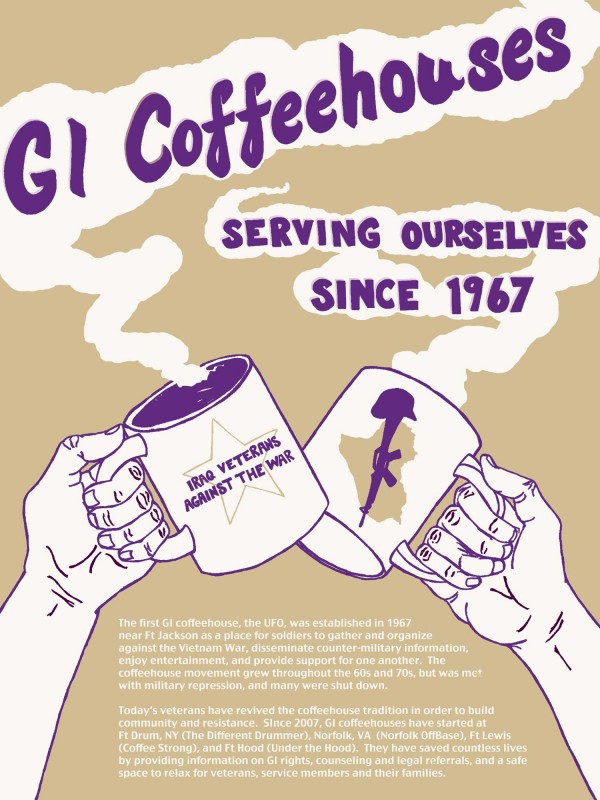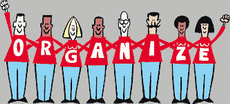Other Voices: The Connexions Newsletter
February 17, 2018
This Issue: Hearts and Minds: How do people change?
If we want to change the world, we need other people – millions, eventually hundreds of millions of others – to agree that the world needs changing and to join us in changing it.
It’s a daunting prospect. How can we reach and persuade those who may have voted for the likes of Donald Trump and those like him in other countries, or who are not interested in engaging in ‘politics’ at all?
Many on the left practise their own version of political disengagement. With the best of intentions but questionable priorities, they reach out to the already converted to organize actions which bring together the same small groups of people to proclaim their principled dissent from the status quo. What is all too commonly missing is any attempt to reach out to the vast majority of the population, those who won’t come to, or ever even hear about, the protests of the left.
How can we reach the millions we need to reach and engage if fundamental change is to happen? How can we accomplish the essential task of persuading a majority of the population that a fundamental social and economic transformation is necessary?
Even more importantly, what will it take for people to come together and act collectively to bring about that transformation? What can we do to help make this happen?
This newsletter presents a number of approaches to answering this crucial question. At heart, though, they share the same fundamental wisdom: you do it by talking to people. One-on-one, or in small groups. And talking to people, having conversations, means listening and asking questions. A good organizing conversation, says Jane McAlevey, is 70 per cent listening and 30 percent talking. The key to canvassing people door-to-door, says Momentum, is asking people what they are concerned about, and listening to their answers.
There is another crucial element to this approach: it means talking to strangers. People you don’t know, people who aren’t political. On their doorsteps, on the street-corner, in front of public buildings.
While every conversation we have can potentially have an impact, to be effective in bringing about social change, such conversations need to be part of a strategy for organizing. Groups working for change need to prioritize organizing that reaches out to people, ordinary people, where they work, live, shop, and play.
Finally, we need to understand that having conversations and listening to people is not a mere tactic, a technique to get them to listen to what we have to say. Listening to people means hearing what they say, and learning from it. We don’t have all the answers. We have much to learn, and we have to be open to learning. It is not only other people, but we too, who need to change if the world is to change.
As always, we invite you to share this newsletter with your friends. You can forward this email, or send them the link to the Other Voices home page on the Connexions website at www.connexions.org/Media/CxNewsletter.htm. Please consider sharing it via social media.
If you'd like to subscribe and receive this newsletter by email every three weeks, please use this form.
Your feedback is appreciated - and so are donations to keep us doing what we're doing!

Topic of the Week
Transformation
When we set out to change the world, we are also asking people to change, often in fundamental ways. And as we engage in this work, we learn, if we didn’t know it already, that we must also be prepared to transform ourselves. The Transformation page in the Connexions Subject Index offers articles, books, and films exploring some of the different dimensions of transformation. Read more
This week on Connexions.org
Having the Hard Conversations
In this interview, labour organizer Jane McAlevey gives her views on organizing. She says that “the key strategic pivot we have to make is having a ton of faith in the capacities of ordinary rank-and-file workers and in the ordinary intelligence of workers.... we need to worry less about how we talk and worry more about listening.... The steps to a good organizing conversation, to a one-on-one, are a framework to how we can be talking collectively as well. There, it's 70-30: 70 percent listening and 30 percent talking. Even the 30 percent talking is really agitational; it's a series of specific questions that allow people to begin to self-analyze the crisis in their life....
The framework of the conversation is so important. People have to engage in self-discovery through face-to-face conversation. It’s not Facebooking, it's not tweeting, it’s not any of this crap - those are mobilizing tools. Organizing tools and an organizing conversation are literally about a process of self-discovery. People begin to systematize and analyze what's going wrong in their life. Real organizing is about focusing on people who are not yet convinced and not yet involved in our movement. We have to focus on the people who are not yet with us, and we're not reaching them through Facebooking and tweeting.” Read more
Keywords: Labour Organizing – Organizing
How Labour's Campaigns Attempted to Make the Political Personal
The basic techniques of convincing people on the doorstep are not different to those of convincing friends or workmates. However, election canvassers have typically gone door-to-door telling voters what the party's policies are. The British Labour Party's new approach, developed by Momentum, emphasized listening to people and identifying their key issues. Organizers say that “there is a transformative and democratising power in political persuasion being done on the ground -- as opposed to solely via elite-owned newspapers, the television or impersonal literature. Read more
Keywords: Election Campaigns – Grassroots Campaigns
Changing Minds on a Changing Climate
Public discourse has been marked by people digging themselves ever deeper into entrenched positions, leaving little hope for compromise or reconciliation. But sometimes people do the unimaginable: They change their minds. An AskReddit discussion poses a tantalizing question, "Former climate deniers, what changed your mind?" Responses to the query offer a rare glimpse into the processes of how some people switch camps, outgrowing their parents’ values, having transformative experiences, or being worn-down by continually mounting scientific evidence. Read more
Keywords: Climate Change Denial - Skepticism
The Rain on our Parade
We are facing a kind of cultural decay, says Rebecca Solnit, “that comes from not valuing truth, not trying to understand the complexities and nuances of our situation, and not making empathy a force with which to act. To oppose them requires us to be different from them, and that begins with both empathy and intelligence, which are not as separate as we have often been told. Being different means celebrating what you have in common with potential allies, not punishing them for often-minor differences. It means developing a more complex understanding of the matters under consideration than the cartoonish black and white that both left and the right tend to fall back on. Dismissiveness is a way of disengaging from both the facts on the ground and the obligations those facts bring to bear on your life. As Michael Eric Dyson recently put it, ‘What is not good are ideals and rhetorics that don’t have the possibility of changing the condition that you analyze. Otherwise, you're engaging in a form of rhetorical narcissism and ideological self-preoccupation that has no consequence on the material conditions of actually existing poor people.’” Read more
Keywords: Left-Wing Politics - Rhetoric
Organizing Your Workplace
This guide from Libcom is aimed at workers whose workplace does not have any collective workers’ organization, but much of the advice it gives is appropriate to any organizing situation. The first piece of advice is: “Ask questions and listen to the answers.” Coupled with this is a caution to be discreet, because management will quickly turn against anyone who is perceived as a potential troublemaker. Specific to workplaces is this advice: “Let’s say that you have an important message to communicate, but you don’t have the time or resources to reach every one of your fellow workers. If you can reach the natural organisers in the informal work groups and get them on your side, you can bet that the word will get around to everyone.” Read more
Keywords: Workplace Issues - Workplace Organizing
Website of the Week
Life After Hate
Life After Hate was created by former members of the American violent far-right extremist movement. The group is dedicated to inspiring individuals to a place of compassion and forgiveness for everyone, including themselves. Through stories of transformation and insights gleaned from decades of experience, they work “to inspire, educate, guide, and counsel.”
“Whether working with individuals who wish to leave a life of hate and violence or helping organizations (community, educational, civic, government, etc.) grappling with the causes of intolerance and racism, Life After Hate works to counter the seeds of hate we once planted. Through personal experience and highly unique skill sets, we have developed a sophisticated understanding about what draws individuals to extremist groups and, equally important, why they leave. Compassion is the opposite of judgment and we understand the roles compassion and empathy play in healing individuals and communities.” Find them here
Keywords: Compassion - Right, The
Books of the Week
Roots of Empathy: Changing the World Child by Child
By Mary Gordon
The Roots of Empathy programme began in 1996 when Mary Gordon started the program with 150 kids in Toronto. Her goal was to help create a society where people were kind to one another and she thought it would be best to start with children who are just developing their social skills. The idea of Roots of Empathy is very basic. Children learn based on observation and interaction with their classmates and a “teacher.” The “teacher” is an infant, ranging from two months to four months at the beginning of the school year. The infant visits a classroom of elementary school children accompanied by a Roots of Empathy facilitator and the infant’s mother. Through the course of the school year, the children are able to witness the baby grow and change. Further, the students are able to observe several different emotions conveyed by the baby that they might not recognize as easily in children their own age. Read more
Keywords: Compassion - Empathy
Calling All Radicals
By Gabriel Thompson
In this book on radical potential of community organizing, Gabriel Thompson stresses the crucial importance of relationship-building. “Of all the tasks that an organizer engages in, by far the most hours of each day are spent building relationships with new people and deepening relationships with those one already knows. The adrenaline-inducing excitement of direct action, in fact, probably makes up less than 0.5 percent of any organizer's time.... Behind revolutionary jargon lies the very ordinary and labor-intensive task of talking to people, gaining their confidence, and recruiting them to become active.” Read more
Keywords: Community Organizing – Manuals & Handbooks for Activists & Organizers
Film of the Week
Fundi: The Story of Ella Baker
Ella Baker was an African-American civil rights organizer; a largely behind-the-scenes organizer whose career spanned more than five decades. Baker criticized professionalized, charismatic leadership; she promoted grassroots organizing, radical democracy, and the ability of the oppressed to understand their worlds and advocate for themselves. She challenged the sexism and class bias of the civil rights movement and the black churches, and once said about her role: “You didn’t see me on television, you didn't see news stories about me. The kind of role that I tried to play was to pick up pieces or put together pieces out of which I hoped organization might come. My theory is, strong people don't need strong leaders.” Find out more
Keywords: Civil Rights Movement (U.S.) – Participatory Democracy
Organizing
Door knocking guide
In community politics, door knocking plays an essential role. From just getting to know your neighbours better, to carrying out a local survey or trying to sign people up to a local campaign or petition, talking to people at home is a valuable exercise, due to its face-to-face nature. However, it can be a daunting task. This set of tips is designed to help you on your way, with pre-planning and then how to act on people’s doorsteps. Read more
Keywords: Community Organizing - Grassroots Campaigns
People's History
GI Coffeehouses Recalled
In the summer of 1967, Fred Gardner arrived in San Francisco with the Vietnam War weighing heavily on his mind. Gardner was attracted to Northern California’s mix of counterculture and radical politics, and hoped to become more actively involved in the movement to end the war. He was particularly interested in the revolutionary potential of American servicemen and couldn't understand why antiwar activists and organizers weren’t paying more attention to such a powerful group of potential allies. Gardner had been closely watching the increasing instances of military insubordination, resistance and outright refusal that were accompanying the war's escalation. He settled on an idea: to open a network of youth-oriented coffeehouses in towns outside military bases around the country. Over the course of the next six years, the coffeehouse network would play a central role in some of the G.I. movement’s most significant actions. Read more
Keywords: Coffeehouses - War Resisters
From the Archives
Organizer Renny Cushing Tapped the Power of Community to Pull the Plug on Nuke Plants
The essence of community organizing, says Renny Cushing, is creating connections and bringing people together, and treating everyone with gentle, earnest consideration. “It really is talking to one person at a time and having other people sharing the conversation, so you begin with a sense of security and how you interact with a person,” he says. “When you do this kind of work, it relies on an enormous amount of trust. If you’re going to change the world, you have to trust other people to do it with you.” That’s part of the job of an organizer: making other people understand they’re important to you. Read more
Keywords: Community Organizing - Organizing
Seeds of Fire
February 18, 1945
Royal Indian Navy mutiny
Indian sailors based in Bombay harbour go on strike against the British. The strike becomes a full-fledged revolt, encompassing 78 ships, 20 on-shore facilities, and 20,000 sailors in various ports. Though the revolt is eventually suppressed by force by the British, it becomes a decisive factor in the British decision to grant India independence. Realizing that it can no longer rely on colonial troops to enforce their rule over India, Britain concludes that it is better to make a deal with the bourgeois pro-independence organizations than to risk being overthrown by a popular uprising.
February 21, 1848
The Communist Manifesto
An obscure German-language printshop in London prints 1,000 copies of a 23-page political statement issued by a small revolutionary organization called the Communist League. With the whiff of revolution in the air, the manuscript has been hurriedly written by two young members of the League, 29-year-old Karl Marx and 27-year-old Friedrich Engels. In that spring of 1848, revolts start to break out across Europe. The original press run rapidly sells out, and the pamphlet, known as the Communist Manifesto, is quickly reprinted and translated into other languages. It goes on to become one of history’s most influential and widely-read political statements.
The Manifesto combines a vision of the total overthrow of capitalist society, and its replacement by communism, with a willingness to ally with other progressive political groups, and a series of short-term demands, including the confiscation of land held by wealthy landowners, a heavy progressive or graduated income tax, the abolition of the right of inheritance for capitalist property, and free education for all children.
March 8, 1917
Outbreak of the “February Revolution” in Russia
200,000 workers go on strike in St. Petersburg. Within days, the Czar is forced to abdicate and a Provisional Government is installed. The Provisional government shares power with the Petrograd Soviet (council), a situation of dual power that eventually culminates in the October Revolution.
Connexions Calendar
February 19, 2018
Louis Riel Day
Celebrate the launch of the new Metis Rights Tour
February 21, 2018
Celebrating our Past, Taking Action for Our Future
Celebrate our rich history of our struggle for freedom and join a discussion on the current struggles facing our community with the objective of developing strategies to makes our voices heard through political action. Then add your voice in a community based discussion to help shape the political action work of the Coalition of Black Trade Unionists, Ontario Federation of Labour and Canadian Labour Congress. By working in solidarity with Black and racialized workers across Canada we will continue the legacy of our ancestors to challenge anti-black racism in our times.
March 3, 2018
2018 Transit Summit
You are invited to our 2018 Transit Summit. The purpose of our Summit is to build the movement for an affordable world class public transit system. This is a key time to advocate for our issues because we have a Toronto and Ontario election in 2018. The summit will feature at least five skill-building workshops to improve our ability to engage in transit advocacy, and two hours allocated to open discussion on topics of our choosing.
March 8, 2018
International Women’s Day
April 26 – 29, 2018
International Rosa Luxemburg Conference
Rosa Luxemburg and Her Ideas: Engaging the Left and Impacting the World. Rosa Luxemburg dedicated her life to the fight against war, poverty, exploitation and any kind of suppression. Yet today in the age of neo-liberalism, we have the same problems as in the beginning of the 20th century. Luxemburg, a versatile Marxist theoretician, excellent journalist, and effective agitator has left us a body of work that may support and impact on the present left.
The Connexions Calendar is an online calendar that exists to advertise events that support social justice, democracy, human rights, ecology, and other causes. We invite you to use it to promote your events. Adding events to the Connexions Calendar is FREE. We’ll give you a username and password which you use to log on. Use the contact form to arrange for a username and password.
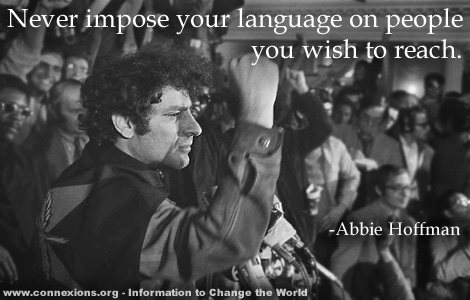
Your support is needed to keep Connexions going
All of the work of the Connexions project is done by volunteers, but our expenses include rent, phone and computer costs and technical support, as well as expenses related to our ongoing project of converting printed archival materials into digital formats. You can make a one time or regular monthly contribution through the donate page on the Connexions website.
Bequests
Many of us have made working for social justice a lifetime commitment. If you are thinking about leaving a legacy for social justice that will live on, you might want to consider leaving a bequest to Connexions in your will. If you'd like to discuss this option, please contact us or see the Bequest page.


